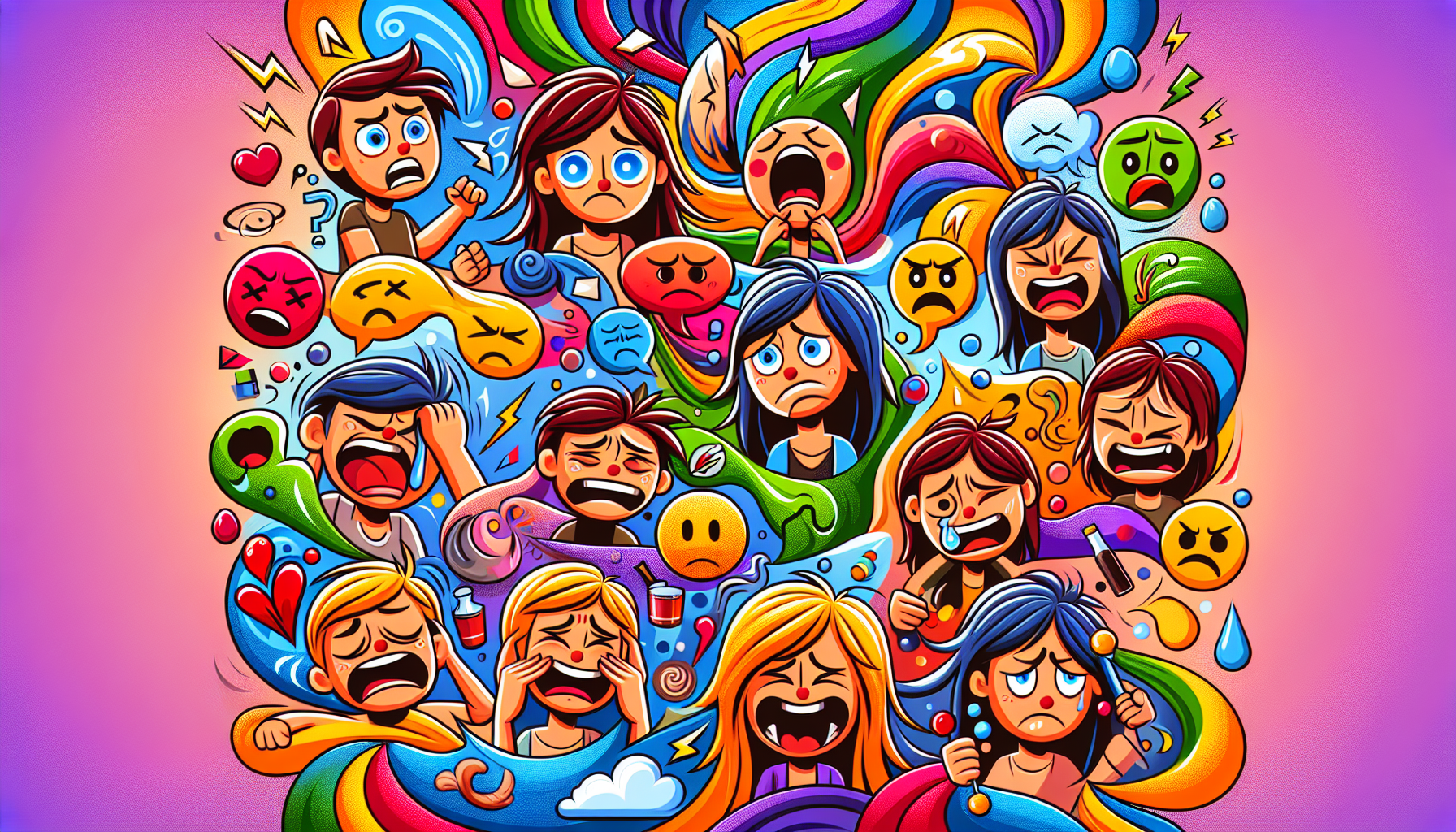Understanding Dry Drunk Syndrome: Symptoms, Causes, and Recovery Tips
- Andrew Collett
- Aug 23, 2025
- 8 min read
A ‘dry drunk’ describes someone who has quit drinking but hasn’t tackled the emotional and psychological issues underlying their addiction. These unresolved problems can manifest in negative behaviors and thought patterns, even in sobriety. This article will help you understand dry drunk syndrome, its symptoms, causes, and effective strategies for a more fulfilling recovery journey.
Key Takeaways
Dry drunk syndrome occurs when individuals abstain from alcohol but do not address the underlying emotional and psychological issues related to their addiction, leading to ongoing negative behaviors.
Symptoms include mood swings, chronic negativity, feelings of victimhood, and isolation, which can increase the risk of relapse if not properly managed.
Effective treatment requires a comprehensive approach that includes individual therapy, holistic methods, support groups, and long-term strategies to maintain sobriety.
What is Dry Drunk Syndrome?

The term “dry drunk syndrome” comes from Alcoholics Anonymous. It describes individuals who have ceased drinking but still grapple with unresolved issues related to their addiction. Simply put, it refers to a state in recovery where an individual abstains from drinking—a reference to the act of drink being central to the syndrome—but has not addressed the underlying emotional and psychological problems that led to their alcohol abuse. This means that while they have quit drinking, they may still exhibit the same behavior—characteristic actions and psychological patterns—and thought patterns associated with their addiction.
Abstinence from alcohol is only the first step in the recovery journey. To truly recover, one must do more than just stop drinking; addressing the psychological and emotional aspects is essential. Individuals who quit drinking without professional support are more likely to experience dry drunk syndrome. Negative emotions and behaviors, such as resentment and chronic negativity, may continue to plague someone who is quitting alcohol but has not addressed these deeper issues. Changing underlying thought processes is crucial for achieving lasting recovery and preventing dry drunk syndrome.
Many individuals experiencing dry drunk syndrome feel overwhelmed and face intensified personal struggles without their substance of choice. This highlights that it’s not just about physical dependence on alcohol but also the emotional and psychological issues that need to be resolved for genuine recovery, including alcohol withdrawal.
Addressing these underlying issues can help individuals move beyond mere sobriety to a healthier, more fulfilling life.
Recognizing Symptoms of Dry Drunk Syndrome

Identifying the symptoms of dry drunk syndrome is vital for those in recovery. These symptoms often present as observable signs—such as changes in mood, behavior, or attitude—that indicate someone may be struggling with the syndrome. Common emotional symptoms include mood swings, depression, and resentment. These symptoms can make an individual feel as though they are still trapped in the cycle of alcohol addiction, even though they have stopped drinking.
Psychologically, individuals may experience feelings of victimhood and romanticize their past substance abuse. This can manifest as chronic negativity and difficulty managing emotions. Behavioral symptoms often include persistent feelings of isolation and discontent, which can severely impact one’s quality of life. Addictive behaviors may persist or shift during recovery, making it important to recognize when someone is substituting one compulsion for another.
Another significant indicator is the phenomenon known as “white knuckling,” where individuals maintain sobriety through sheer willpower alone, without addressing their emotional and psychological issues. Some individuals may substitute alcohol with other addictive behaviors, which is a sign that underlying issues remain unresolved and can hinder long-term recovery.
Understanding these symptoms allows individuals and their loved ones to better address dry drunk syndrome, leading to more effective recovery strategies. Additionally, post acute withdrawal syndrome (PAWS) can overlap with dry drunk syndrome, presenting symptoms such as mood swings and anxiety that further complicate the recovery process.
Causes of Dry Drunk Syndrome
The causes of dry drunk syndrome are deeply rooted in unresolved trauma and unmanaged mental health issues. When individuals quit drinking, they often face a resurgence of guilt, anxiety, and a lack of interest in daily activities, which can overlap with symptoms of depression. These underlying issues need to be addressed for successful recovery. This highlights that it’s not just about physical dependence on alcohol but also the emotional and psychological issues that need to be resolved for genuine recovery, including alcohol withdrawal. Substance use and drugs can also play a significant role in the development of dry drunk syndrome, as addiction often involves both alcohol and other substances.
A lack of adequate support systems can also contribute to the persistence of dry drunk behaviors. Each person may have unique contributing factors that influence their experience and recovery process. Without a strong network of emotional and psychological support, individuals may find it challenging to navigate their recovery journey. Anger and resentment towards those who tried to help during the drinking phase is another common cause.
Furthermore, poor self-awareness can prevent individuals from recognizing their shortcomings and the need for personal growth. Comprehensive treatment involves addressing these emotional issues that typically accompany addiction, including those related to substance use and drugs. Addressing these root causes enables individuals to move beyond dry drunk syndrome, achieving a more stable and fulfilling sobriety. The mental health services administration provides valuable information on understanding the root causes and recommended treatments for dry drunk syndrome.
Risks Associated with Dry Drunk Syndrome
One of the most significant risks associated with dry drunk syndrome is the heightened potential for relapse. Most people in recovery face these risks and require ongoing support to maintain long-term sobriety. When the underlying causes of alcoholism are not addressed, individuals are more likely to return to their old drinking habits. This underscores the importance of comprehensive treatment that goes beyond mere abstinence.
Dry drunk syndrome can also lead to mental health issues such as depression and anxiety. These unresolved emotional issues, like trauma and grief, can resurface after quitting drinking, causing frustration and anger. Additionally, individuals experiencing dry drunk syndrome often maintain the same negative behaviors and attitudes associated with their addiction despite being sober.
The syndrome can have a destructive impact on relationships and daily life. Persistent negative emotions and behaviors can lead to isolation and a lack of emotional support from friends and family. Failing to replace drinking with positive activities leaves individuals feeling unfulfilled, increasing the risk for reverting to negative behaviors.
Understanding these risks is crucial for anyone on the path to recovery, as it highlights the need for a comprehensive and supportive approach to treatment. Making sobriety a first place priority in the recovery journey can help individuals stay focused and committed to lasting change.
Effective Treatment Options for Dry Drunk Syndrome

Effective treatment options for dry drunk syndrome involve a combination of individual therapy, holistic treatments, and aftercare programs. Individual therapy provides a safe space for discussing grievances and gaining insight into recovery. Group therapy also offers significant benefits by providing shared support, fostering hope, and allowing participants to share experiences that aid in recovery. Therapeutic environments are crucial as they allow individuals to explore their feelings and address the root causes of their addiction.
Holistic treatments aim to heal the entire individual—mind, body, and spirit—rather than just addressing addiction symptoms. Seeking professional assistance is essential to ensure a comprehensive recovery plan tailored to individual needs. Practices such as yoga and meditation play a crucial role in addiction treatment recovery by promoting mental clarity and emotional stability. Acupuncture can also aid in relieving physical discomfort and reducing withdrawal symptoms, promoting relaxation and emotional balance.
Aftercare programs play a crucial role in sustaining recovery by providing continued support and resources after leaving rehab. Various types of recovery support groups, such as Dual Recovery Anonymous and Secular Organizations for Sobriety, cater to different needs. Incorporating these treatment options helps individuals achieve successful long-term recovery and avoid the pitfalls of dry drunk syndrome. Adopting a healthy way to manage triggers and maintain sobriety is vital for lasting recovery.
The Role of Support Groups in Recovery

Support groups play a vital role in recovery by fostering hope and sharing personal experiences. These groups provide essential emotional backing, helping individuals feel more connected and less isolated during their recovery process. Members often benefit from shared experiences, which can alleviate feelings of shame and enhance self-belief.
Having a sponsor within support groups like Alcoholics Anonymous can significantly contribute to long-term sobriety. Sponsors provide guidance, support, and accountability, which are crucial for maintaining sobriety. Encouraging participation in therapy and support groups is vital as it can inspire hope and provide necessary insights.
Joining a support group grants individuals access to a wealth of knowledge and experience, aiding in navigating the challenges of recovery. These groups are a cornerstone of successful recovery programs, offering both emotional and practical support to those in need.
How Loved Ones Can Help
Loved ones play a crucial role in supporting an individual with dry drunk syndrome. If you are a loved one, offer encouragement, listen without judgment, and help your family member or friend find positive activities to support their recovery. Encouraging continued treatment and participation in support groups can make a significant difference. Engaging in healthier, stimulating activities can help combat the symptoms of dry drunk syndrome and provide a positive outlet for their energy.
Relationship issues can seem insurmountable when dealing with dry drunk syndrome, but with patience and understanding, loved ones can help bridge the gap. Offering emotional support and being present during difficult times can foster a sense of connection and stability, which is essential for long-term recovery.
Incorporating Holistic Approaches
Incorporating holistic approaches in recovery can address both behavioral and emotional aspects linked to dry drunk syndrome. Maintaining good physical health is essential for supporting mental well-being, which in turn is crucial for long-term sobriety. Techniques such as mindfulness can help individuals observe their cravings without acting on them, thereby supporting long-term sobriety.
Cravings can be managed through techniques like ‘urge surfing,’ which involves visualizing cravings as waves that will eventually ebb. The 28-Day Sober Coaching Program includes guided meditation, yoga, reflection exercises, and nutritional advice to help rebuild participants mentally, physically, and emotionally. Participants will have access to daily video demonstrations of yoga practices and coping techniques throughout the program.
Guided audio meditations for relaxation and stress relief will also be provided, helping individuals manage stress and maintain emotional balance. Incorporating holistic approaches allows individuals to create a well-rounded recovery plan addressing all aspects of their well-being.
Long-Term Strategies for Maintaining Sobriety

Maintaining sobriety in the long term requires building a strong support network. This reduces feelings of isolation and can significantly enhance recovery efforts. Identifying personal triggers—both external and internal—is vital for effectively managing the risk of relapse. Planning for high-risk situations by avoiding, escaping, or delaying responses can significantly aid in preventing relapses.
Achieving a balance between obligations and enjoyable activities helps mitigate stress and reduce the risk of relapse. Recognizing the difference between a lapse and a relapse can help individuals manage setbacks without losing sight of their recovery goals. Implementing these strategies helps individuals maintain sobriety and build a fulfilling life free from alcohol.
Summary
Understanding dry drunk syndrome is crucial for anyone on the path to recovery. By recognizing its symptoms and causes, addressing the risks, and exploring effective treatment options, individuals can move beyond mere sobriety to achieve a healthier, more fulfilling life.
By implementing these strategies and maintaining a strong support network, individuals can overcome dry drunk syndrome and build a life of lasting sobriety. Remember, recovery is a journey that requires ongoing effort and support, but with the right tools and mindset, it is entirely achievable.
Frequently Asked Questions
What is dry drunk syndrome?
Dry drunk syndrome occurs when an individual abstains from alcohol but fails to confront and resolve the emotional and psychological issues that led to their addiction. This can hinder their overall recovery and well-being.
What are the common symptoms of dry drunk syndrome?
Dry drunk syndrome commonly presents with mood swings, depression, chronic negativity, and emotional management challenges. Recognizing these symptoms is crucial for addressing the underlying issues effectively.
What are the causes of dry drunk syndrome?
Dry drunk syndrome is caused by unresolved trauma, unmanaged mental health issues, lack of support systems, and inadequate self-awareness. Addressing these underlying factors is crucial for recovery.
How can loved ones help someone with dry drunk syndrome?
Loved ones can significantly assist someone with dry drunk syndrome by encouraging ongoing treatment and participating in healthy activities together. Providing consistent emotional support is also essential for this individual's recovery.


Comments